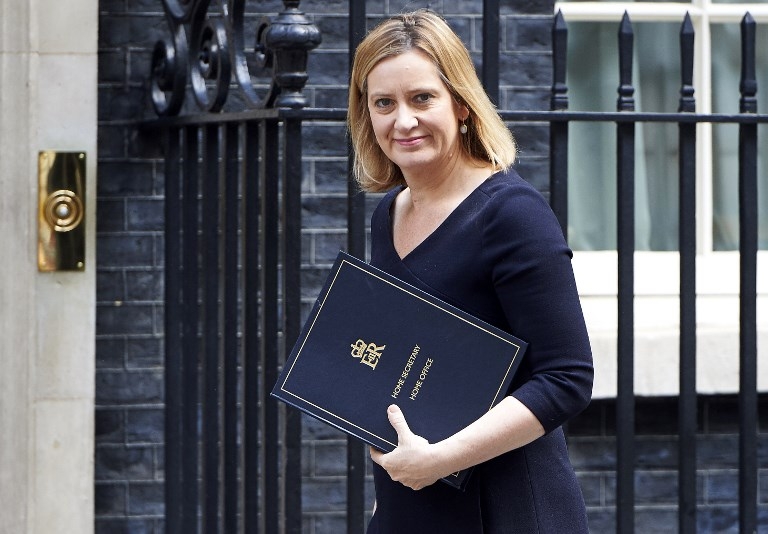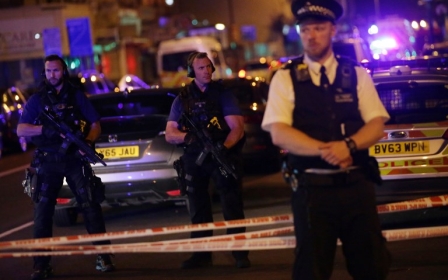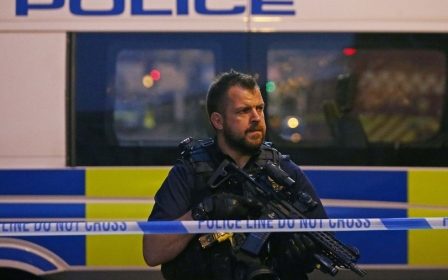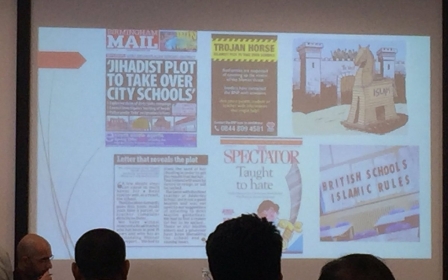Dear Amber Rudd: Here are 10 ways you can give Muslims the full protection they deserve

Dear Ms Rudd,
We don’t know each other, so let me start by introducing myself: I am a British Muslim entrepreneur and philanthropist. Most importantly, I retired from a lucrative business career to tackle Islamophobia full-time because politicians were not doing it (as last week's attack at Finsbury Park tragically proved).
Here are 10 things you can do which I promise you will dramatically reduce Islamophobia:
1. Record anti-Muslim hate crime properly
Credit to your government - in 2015, you made it a legal requirement for UK police forces to record Islamophobia properly, similar to racism and anti-Semitism. The problem, of course, is in the implementation of such well-intended policies. Officers urgenly need training to ensure that the new law is not rendered worthless.
2. Deal with legitimate Muslim organisations, not government stooges
Since 2010, successive Conservative governments have effectively boycotted mainstream Muslim organisations. Your government has refused to deal with the likes of the Muslim Council of Britain (MCB), the Federation of Student Islamic Societies (FOSIS) and MEND (Muslim Engagement and Development).
MCB have more affiliates than any other Muslim organisation in the UK and therefore the largest mandate to represent British Muslims; over 90 percent of Islamic societies are affiliated with FOSIS; and MEND has the largest grassroots Muslim presence nationally.
But instead of working with groups like ours, you deal with organisations created by government agencies like the Research, Information and Communications Unit (RICU) which have no grassroots presence and are often viewed with deep suspicion by British Muslims. You will never resolve the problems of radicalisation by dealing with the wrong people. As Baroness Warsi said: “It’s time to reset relations with the Muslim community.”
3. 'Free and fair' press regulation
The former prime minister David Cameron vowed to implement the findings of the Leveson Inquiry into the practices of British media provided they were not "bonkers". Four years after the Royal Charter confirming effective press regulation was sealed, Section 40 - which would force media organisations which refuse to sign up to the Royal Charter's regulation system to pay both sides of costs in libel and privacy disputes - still hasn't been enacted.
4. Protect and educate schools and young children
A recent ChildLine report revealed a shocking 69 percent increase in "racist bullying" in playgrounds. Deeper investigation revealed that the most common words used to bully children were "terrorist" and "bomber", making it highly likely that Muslim children are suffering the brunt of this bullying.
With the government showing little appetite to provide schools with the tools to deal Islamophobia that they urgently require, NGOs have done so themselves.
5. Integration works. Don't listen to naysayers
Don’t be fooled by hatemongers who claim Muslims don’t integrate. We provide medical attention when you walk into hospitals, serve you at restaurants and drive you around cities. We proudly represent our great nation at sport – think Mo Farah, Moeen Ali, Mo Sbihi, Amir Khan, Lutalo Muhammad – and we even bake cakes fit for the Queen.
Ghettos may exist, but they are a product of economic circumstances rather than a desire for separation. Muslims are not alone in living in concentrated communities, with densely populated Hindu, Sikh, Jewish, Black and other communities found across the country, but little is said about these conurbations.
6. UK counter-terrorism laws and Prevent don't work
Eighty percent of referrals to the Channel programme are unwarranted, many involving young Muslim children. So it’s no surprise that Prevent has been lambasted by the UN, leading academics, Britain's former independent reviewer of terrorism David Anderson, teaching unions and parliamentary committees among many others.
The causes of the radicalisation threat, the method of training those who identify it and the level of unwarranted intervention all require real clarity. Prevent and the UK's current counter-terror legislation don't offer that.
7. Focus more on tackling the far-right
For far too long, lip service has been paid to a now well-developed, far-right threat in the UK. Mohammed Saleem, Mushin Ahmed and Jo Cox have all paid for the actions of far-right groups with their lives.
The country's counter-terror apparatus needs to focus far more on the far-right’s methods, key players and ideology. Let’s ultimately not kid ourselves though: the far-right draw fuel from an unregulated press and a weak "incitement to religious hatred" law. Government should provide Muslim institutions with adequate security funding, especially, for example, given the £13m that the government pays for the cost of security at Jewish schools in the UK.
8. Confront social deprivation issues and anti-Muslim employment discrimination
Data shows half of British Muslims live within the 10 percent most deprived districts in England and Wales, indicating that more needs to be done to provide opportunities for true social mobility.
Employment discrimination faced by Muslims is well-documented - the National Equality Panel found Muslims are paid 13 to 21 percent less than others with equal qualifications. BBC research showed Muslim job applicants were three times less likely to be offered an interview. This makes it imperative that government introduces name-blind applications into employers’ recruitment processes.
9. Understand the potential of British Muslims and congratulate them for their achievements
Polls regularly demonstrate Muslims as more patriotic and more generous than the average Brit. Show Muslims that their generosity and loyalty is appreciated, instead of constantly placing them under suspicion.
10. Work off fact, not fiction, or right-wing lobbyists
Coverage of the Trojan Horse controversy and the subsequent inquisition of Muslim-populated schools was a bitter pill to swallow, especially given the subsequent findings of the Education Select Committee, which concluded that “no evidence of extremism or radicalisation, apart from a single isolated incident, was found by any of the inquiries” into the affair.
Two Muslim teachers subsequently had life bans overturned and five senior teachers had their disciplinary cases thrown out, emphasising why government policy should be based on fact and not hearsay.
In closing, as a businessman, I built various national companies from nothing and learned the importance of correctly identifying market need, incorporating all stakeholders impacted by my products and rigorously testing my theories before marketing them – you should do no less.
I am happy to offer free advice on British Muslims, be it radicalisation, integration or extremism which would cost you a fortune otherwise. Rethink your temptation to talk to those who agree with you and whom you fund, and instead come and talk to those of us whom the community funds and whom you need to hear. I’m sure you’ll know where to find me.
- Sufyan Ismail is an award-winning serial entrepreneur and philanthropist and was recently ranked amongst the 500 most influential Muslims in the world. He graduated from the University of Manchester and then started his career training with Deloitte. Sufyan has built numerous businesses over the years specialising in financial services, private equity and real estate. His businesses have won numerous awards including ‘UK’s fastest growing company', NW entrepreneur of the year and have been listed in the Sunday Times Top 100 Fast Track corporate listings. His businesses have donated over £5m towards alleviating poverty in developing countries, supporting orphans and providing emergency medical relief in disaster zones. Sufyan has also authored various briefing papers and part-authored a university textbook on Islamic finance.
In 2014, Sufyan formally retired from full-time business activity to focus on philanthropic adventures with a key focus on tackling Islamophobia. To this end he was the founder of MEND which specialises in tackling Islamophobia via a dual approach of advocacy in Westminster and media engagement as well as improving media and political literacy of grassroots British Muslims across the UK.
The views expressed in this article belong to the author and do not necessarily reflect the editorial policy of Middle East Eye
Photo: Britain's Home Secretary Amber Rudd arrives to attend a Cabinet meeting at 10 Downing Street in London on 20 June 2017. (AFP)
Middle East Eye propose une couverture et une analyse indépendantes et incomparables du Moyen-Orient, de l’Afrique du Nord et d’autres régions du monde. Pour en savoir plus sur la reprise de ce contenu et les frais qui s’appliquent, veuillez remplir ce formulaire [en anglais]. Pour en savoir plus sur MEE, cliquez ici [en anglais].





